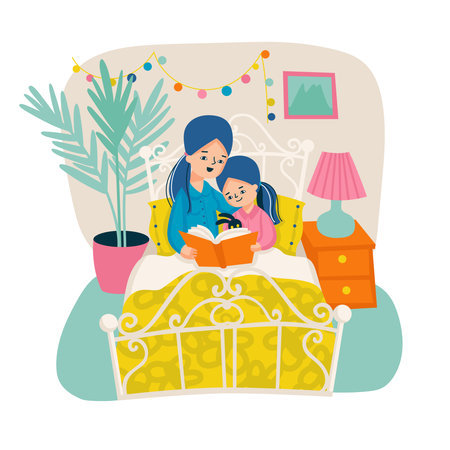Understanding Baby Sleep Needs in Indian Households
In India, baby sleep needs can be uniquely influenced by the country’s diverse cultural and environmental factors. Unlike Western settings, Indian families often live in joint family setups where several generations share a home. This traditional structure can impact a baby’s sleep routine, as babies may experience varying levels of noise, activity, and attention throughout the day and night. Additionally, India’s climate—ranging from hot summers to humid monsoons—can affect how comfortably babies sleep, with families sometimes adapting sleep environments to suit seasonal changes by using fans, air coolers, or light cotton bedding. Cultural routines such as late-night family gatherings, religious practices, and festivals also play a role in shaping when and how babies settle down for sleep. Understanding these influences is important for parents seeking to create healthy sleep habits for their infants within the context of Indian households.
2. Traditional Indian Practices Affecting Baby Sleep
In India, traditional practices deeply influence how families approach baby sleep. These customs are passed down through generations and are considered essential for a childs well-being. Understanding these practices helps us appreciate the unique sleep patterns observed among Indian babies.
Co-Sleeping: A Common Tradition
Co-sleeping, where the baby shares the bed with parents or family members, is widely practiced in India. Many families believe that co-sleeping promotes bonding, offers comfort, and enables quick response to the babys needs at night. However, it may sometimes lead to frequent awakenings and can affect the development of independent sleep habits.
The Role of Hammocks (Jhoola) in Sleep
Using a traditional hammock, known as a jhoola, is another common practice. Jhoolas are believed to mimic the gentle rocking motion experienced by the baby in the womb, which soothes infants and helps them fall asleep faster. The swinging movement can be calming, but care must be taken to ensure safety and avoid accidents.
Lullabies: Soothing Indian Melodies
Lullabies, or lori, are an integral part of bedtime routines across India. Mothers and grandmothers often sing soothing songs in regional languages to calm babies and signal that it’s time for sleep. These lullabies not only foster emotional security but also create a peaceful environment conducive to restful sleep.
| Traditional Practice | Cultural Significance | Impact on Baby Sleep |
|---|---|---|
| Co-sleeping | Bonding, emotional comfort | Frequent night awakenings, less independent sleep |
| Jhoola (Hammock) | Mimics womb environment | Soothes babies, encourages quicker sleep onset |
| Lullabies (Lori) | Cultural heritage, emotional security | Calms baby, creates bedtime routine |
While these practices have their advantages rooted in Indian culture and values, parents should be mindful of safety and consider adapting routines if sleep problems persist. Combining traditional wisdom with modern safe-sleep guidelines can help ensure restful nights for both babies and families.

3. Common Sleep Problems among Indian Babies
Sleep challenges are a common concern for many Indian parents, and understanding the unique issues faced can help families provide better support for their babies. Below, we discuss some of the most prevalent sleep problems among Indian infants and how cultural practices might influence them.
Frequent Night Waking
It is quite common for Indian babies to wake up multiple times during the night, especially in the first year. Factors such as hunger, discomfort due to weather changes (hot summers or cold winters), and even teething can disrupt their sleep. Moreover, many families practice co-sleeping, which, while comforting, may sometimes make it easier for babies to wake up and seek attention or feeding more frequently.
Difficulties in Self-Settling
Many Indian babies struggle to settle themselves back to sleep without parental intervention. This is often because of deep-rooted family traditions where caregivers rock, feed, or sing lullabies (like “lori”) to soothe babies. While these methods are nurturing, they might delay the development of self-soothing skills that help children sleep independently through the night.
The Influence of Daily Prayers and Festivals
India’s vibrant cultural life includes regular rituals such as early morning or late evening prayers (pujas), temple bells, and family gatherings. During festivals like Diwali or Navratri, the celebratory noise, lights, and late-night activities can extend well into the baby’s bedtime hours. These disruptions may cause irregular sleep schedules or fragmented rest for little ones.
Gentle Reminders for Families
While these sleep problems can be challenging, remember that every family’s situation is unique. Small adjustments—like creating a calm bedtime routine or gradually encouraging independent sleep—can make a big difference over time. Respecting your baby’s needs while balancing family traditions will help ensure restful nights for everyone.
Impact of Extended Families and Household Dynamics
In many Indian households, the presence of extended family members—such as grandparents, uncles, aunts, and cousins—is a common aspect of daily life. This joint family system can have a significant impact on baby sleep needs and patterns. On one hand, the wisdom and experience of elders offer valuable guidance in nurturing the baby, providing emotional support to parents, and assisting with nighttime care. On the other hand, differing opinions, cultural practices, and varying routines can sometimes challenge the establishment of healthy sleep habits for infants.
Supportive Aspects of Living with Extended Family
| Support Provided | How It Helps Baby Sleep |
|---|---|
| Shared Responsibilities | Nighttime duties are distributed among family members, reducing parental fatigue. |
| Elders’ Experience | Traditional remedies and tips can soothe babies during sleep disturbances. |
| Emotional Security | The baby feels safe and secure with more caregivers around. |
Challenges Presented by Household Dynamics
| Challenge | Potential Impact on Sleep Habits |
|---|---|
| Differing Opinions on Sleep Practices | Conflicting advice (e.g., co-sleeping vs. crib) may confuse parents or disrupt consistency. |
| Noisy Environment | Larger households can mean more noise and activity, making it harder for babies to fall or stay asleep. |
| Cultural Rituals & Gatherings | Frequent celebrations or late-night visitors can interrupt established sleep routines. |
Balancing Tradition and Modern Recommendations
Parents in India often strive to respect traditional beliefs while also considering modern sleep guidelines for infants. Open communication among family members about the importance of consistent bedtime routines and quiet environments is essential. Involving grandparents in discussions about sleep safety (such as safe sleeping positions and avoiding over-bundling) helps create a supportive atmosphere that prioritises the baby’s well-being.
Tactful Tips for Harmonious Sleep Practices:
- Politely explain any new sleep techniques you wish to try, referencing reputable sources if needed.
- Create a designated quiet space for your baby during nap times.
- If possible, establish certain “quiet hours” in the household to support restful sleep for your little one.
Understanding how joint family living affects infant sleep allows Indian parents to leverage familial support while gently addressing potential challenges—ensuring their baby’s health and happiness are always at the forefront.
5. Practical Tips for Improving Baby Sleep in Indian Context
As Indian parents, you may often find yourself balancing traditional wisdom with modern parenting advice. Here are some gentle and practical suggestions to help your baby sleep better, keeping in mind the unique aspects of Indian households.
Establish a Consistent Bedtime Routine
Consistency is key to helping babies understand when it’s time to sleep. Try to set a regular bedtime and follow a calming routine each night—this could include a warm bath, gentle lullabies in your native language, or a soothing oil massage, which is a cherished tradition in many Indian families.
Manage Household Noise
Indian homes are often lively with extended family members and frequent guests. If possible, create a quiet environment during your baby’s sleep time. Using white noise machines or playing soft devotional music can help mask sudden sounds from the neighbourhood or celebrations.
Blend Modern Sleep Advice with Traditional Practices
While it’s important to follow safe sleep guidelines—such as placing your baby on their back in a separate crib—you can also incorporate comforting customs like wrapping your baby in a soft cotton cloth (swaddling) or using gentle rocking motions. Just ensure that whatever method you choose prioritises safety and comfort.
Keep Room Temperature Comfortable
India’s climate varies greatly, so make sure your baby isn’t too hot or cold. Lightweight cotton bedding works well in most regions and helps avoid overheating—a common concern during summers.
Respond to Your Baby’s Needs with Patience
Crying is your baby’s way of communicating. Attend to their needs calmly, whether they require feeding, a diaper change, or simply some cuddles. Over time, this reassurance helps them settle into longer sleep stretches.
Avoid Overstimulation Before Bedtime
Limit loud TV shows or mobile phone usage near your baby before sleep. Instead, opt for quiet family time or reading simple stories. This helps signal to your little one that it’s time to wind down.
Remember, every baby is unique and what works for one may not suit another. Blending trusted family traditions with current sleep recommendations will provide your child with comfort while supporting healthy sleep habits.
6. When to Seek Professional Help
It is natural for Indian parents to feel concerned when their baby faces sleep challenges, but some issues may need more than home remedies or traditional advice. While mild sleep disturbances can often be managed with changes in routine and environment, there are specific signs that should prompt you to consult a paediatrician or a certified sleep specialist.
Recognising Concerning Sleep Patterns
If your baby persistently struggles to fall asleep or wakes up frequently throughout the night for several weeks despite consistent efforts, it may indicate an underlying issue. Look out for symptoms such as excessive crying at bedtime, difficulty breathing during sleep (snoring, gasping, or long pauses), or chronic restlessness. These can sometimes be mistaken for colic or teething but might signal a medical concern that needs professional attention.
When Sleep Issues Affect Growth and Development
Sleep is crucial for your baby’s physical and cognitive growth. If you notice poor weight gain, irritability during the day, or developmental delays alongside sleep problems, it is important to seek timely advice. In India’s joint family setups, well-meaning relatives may suggest home remedies like rocking or feeding to sleep, but persistent sleep deprivation can impact your baby’s overall well-being.
Trust Your Parental Instincts
Indian parents often rely on family wisdom and local customs, but trust your instincts if something feels unusual about your child’s sleep habits. If your baby’s sleep problems are causing distress to the family or affecting your own health, do not hesitate to approach a healthcare provider.
Consulting the Right Specialist
A paediatrician is usually the first point of contact and can evaluate whether your baby’s sleep issue is linked to any medical condition common in India, such as allergies, reflux, or infections. If necessary, they may refer you to a paediatric sleep specialist who understands the unique context of Indian families and can offer tailored solutions.
Remember, early intervention can make a significant difference. Reaching out for professional help ensures that both you and your baby enjoy restful nights and healthy development.


